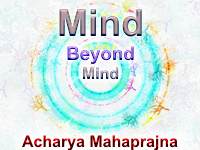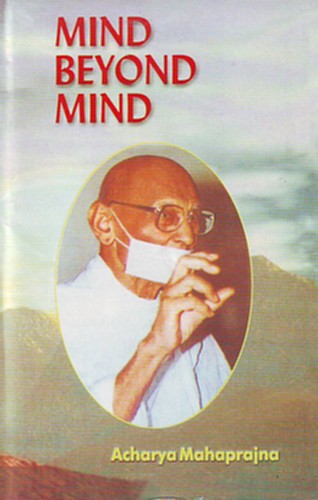
Does the difference between Vrata and Mahavrata consist in the former being based on approval or endorsement on our part?
Yes, it does. Our endorsement or approval of the physical, mental and speech actions of others is a kind of reservation and it keeps us within the area of Vrata only. Once we have given up this reservation, we enter into the area of Mahavrata.
There are certain things, which we renounce in order to avoid Avrata, although we are not interested in them. Is it necessary to renounce such things? Or should we concentrate on changing the direction of our consciousness?
It is a good question. It is one thing to give up possessions. It is quite another thing to change the direction of consciousness. Both have their own purposes. The basic thing is a change in the direction of consciousness. If giving up possessions is helpful in changing the direction of consciousness, it is desirable and should be done. Otherwise it has no value. While practising giving up things, we should keep in mind that our ultimate aim is the reorientation of consciousness and the practice of giving up things should be taken up as an exercise. In no case should we give the second place to the changing of the direction of consciousness. Renunciation by itself is meaningless.
Bhima joined battle with Duryodhana but the latter was too strong to be defeated. His body had been rendered impregnable by the magical power of the eyes of his mother Gandhari. Whatever objects the eyes of Gandhari saw became invincible. In order to become invincible Duryodhana exposed his body to the eyes of his mother except his genitals, which he kept covered with a loins cloth for the sake of decency. Bhima tried hard to kill Duryodhana, but failed. Krsna knew the secret and passed it on to Bhima, who, having known the secret struck his adversary on the genitals and killed him. The moral is that we should not go for trivialities but concentrate on the basic thing. Giving up things is not the central point. There is no end to the objects of the world. They are being multiplied by the ingenuity and inventive power of mankind. How far shall we go on renouncing them? What is needed is to change the point of our interests. We have to collect all our interests around our self. This, of course, will need a lot of exercise and we may try to give up things as an exercise for the purpose of changing the direction of our consciousness.
Does not giving up things or possessions, result in piety?
Yes, it does. But it is a very minor thing. The main thing is our attitude towards possessions or things. We should relinquish our attachment and craving for things. If you throw something into the fire, it will be burnt. If you do not throw something into the fire, you may very well have the satisfaction of having saved it. But supposing there is no fire. Will you still have the satisfaction that you have saved something? What is material is to extinguish the fire, the craving for sensory and mental pleasures. There will be no question of giving up things, if the passions, which keep you attached to things, are absent. They will be absent once you have changed the direction of your consciousness. Passions and attachments are like the fire, which will be automatically extinguished by changing the direction of consciousness. The giving up of things should be helpful in extinguishing the fire.
The householder is not a monk and therefore how can he give up every thing?
Even a monk does not give up everything. One may be a householder or a monk. In both cases what is material is not the giving up of possessions, but a change in the direction of consciousness.
Vrata means the field of the operation of pure consciousness. How are we to ascertain that the whole of the field has been covered?
There is no need to ascertain the area of Vrata. Consciousness may cover any field for the sake of exercise. When we train a child, we place before him various replicas of actual objects. We may adopt any replica. The main purpose is to give the child an idea of the actual object represented by the replica by training his capacity to do so.
The purpose of education is to develop the intellectual powers of the child. For this purpose the child is given training in various arts and sciences like history, geography, social sciences etc. Every country has introduced its own system of education. The purpose behind all the systems is one and the same. It is to develop the mental and physical powers of the child. The systems of education may differ, but they aim at the same thing. Our purpose is to divert the outward flow of our consciousness towards the self in order that it may be absorbed in the fundamental nature of the soul. The practice of renouncing worldly things is aimed towards this end. We may adopt any exercise, but we should see that every exercise gives us training in changing our attitude towards worldly things and enables us to become detached from them. The major purpose is to give up attachment itself. We should, from time to time, watch as to how much attachment has already vanished. From this point of view both the giving up of things and a change in the direction of consciousness are valuable. Both should go together.
Are both giving up of worldly things and change of the direction of consciousness necessary for the ascent of consciousness?
Yes, they are. But let us be very clear about them. Giving up of worldly things alone is not enough, because it creates the same difficulties which attachment to things does. The basic thing to be borne in mind is a change in the direction of consciousness. We should practise giving up things with a conscious purpose otherwise we shall not succeed. We can achieve our aim only gradually. Giving up things is only one step towards the final achievement of the objective.
Does consciousness, when it begins to flow outwards from its main source, create new situations?
Our consciousness flows outwards in the same way in which the rays of the sun flow in a direction opposite to the sun. This is quite natural. This does not mean that the sun sends its rays opposite to itself purposively. Consciousness does not send its rays towards the outer world willingly. If these rays come across something other than the soul, they do so only accidentally. It is only when we deliberately wish consciousness to meet something outside the soul that we create difficulties for ourselves.
 Acharya Mahaprajna
Acharya Mahaprajna

